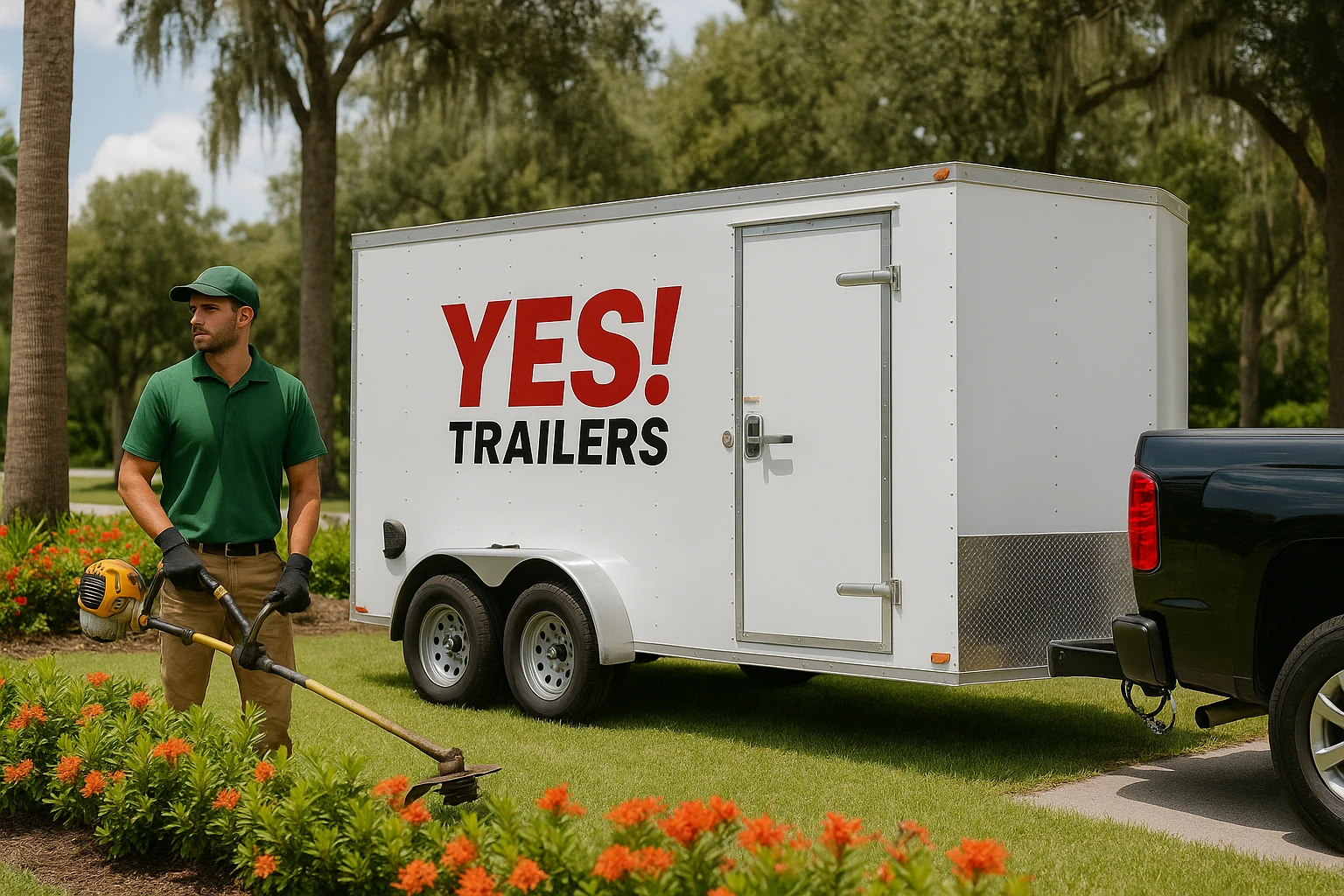Table of Contents
The logistics and transportation sectors in the United States are experiencing rapid transformation driven by technological innovation, shifting consumer behaviors, and the increasing demand for flexibility. One of the most notable developments in recent years is the growth of peer-to-peer (P2P) trailer-sharing platforms, a model that is revolutionizing the way trailers are rented and managed.
Understanding the Peer-to-Peer Trailer Sharing Model.
Peer-to-peer trailer sharing connects trailer owners directly with businesses or individuals seeking temporary trailer access. Rather than maintaining expensive fleets with high fixed costs and maintenance overhead, companies and private users can now rent trailers as needed, optimizing their logistics capabilities. This not only generates additional revenue streams but also ensures that trailers spend less time idle, significantly improving asset utilization.
Benefits of P2P Trailer Sharing
1. Reduced Costs and Capital Investment
Traditional fleet management requires substantial upfront investment and ongoing maintenance expenses. Users eliminate these high initial costs by renting trailers precisely when and where they’re needed, thus converting fixed costs into flexible, operational expenses.
2. Scalability and Flexibility
Businesses in sectors with fluctuating demand—such as retail, event management, or seasonal logistics—benefit significantly from the flexibility. Instead of maintaining a large fleet to handle peak periods, companies can scale their trailer usage dynamically, ensuring they only pay for what they need.
3. Enhanced Geographic Reach
If a company requires a trailer in a region where it doesn’t maintain a physical presence, it can quickly find suitable rentals through the platform, significantly reducing response times and enhancing customer satisfaction.
4. Environmental Impact
Optimizing trailer usage reduces unnecessary production and promotes sustainability. This contributes positively to sustainability goals, reducing waste and emissions associated with new trailer production and underused assets.
5. Improved Asset Utilization
Idle trailers represent lost potential and ongoing costs. Through effective P2P sharing, trailer owners can keep their assets productive, generating income and offsetting maintenance and depreciation expenses. This aligns perfectly with contemporary asset-light strategies preferred by modern logistics operators.
Case Studies: Real-Life Impact

Local Small Business Example:
Consider a small landscaping company in Florida that only occasionally requires a cargo trailer for specific seasonal jobs. Instead of investing heavily in purchasing and maintaining a trailer year-round, the business now uses Yes!Trailers to rent trailers exactly when needed. This significantly lowers their operating costs, improving profitability and flexibility.
Mid-Sized Company Scenario:
A medium-sized construction firm in Texas expanded into new regions without having to invest in a dedicated fleet for each location. Through Yes!Trailers, they secured reliable, local trailer rentals swiftly, streamlining project logistics and reducing capital exposure.

Also Read: CEVA Logistics Tracking: Step-by-Step Guide to Track Your Shipments Online
The Future of Trailer Sharing
Looking forward, the peer-to-peer sharing economy in logistics is poised for continued growth. Driven by digitization and increasingly sophisticated platforms like Yes!Trailers, businesses and private users will have unprecedented control over their logistics operations, allowing them to adapt swiftly to changing market dynamics.
Final Thoughts: Embracing Innovation
The US logistics industry is transforming rapidly, driven by new business models that emphasize agility, cost-efficiency, and environmental responsibility. Yes!Trailers exemplifies this shift, showcasing how peer-to-peer sharing can provide significant operational advantages to both trailer owners and renters.
As logistics companies continue to adapt and evolve, embracing platforms like Yes!Trailers is more than a strategic decision—it’s becoming a necessity to remain competitive, agile, and responsive in today’s fast-paced logistics market.
To explore more about how your logistics operations can benefit from peer-to-peer trailer sharing, visit Yes!Trailers.


